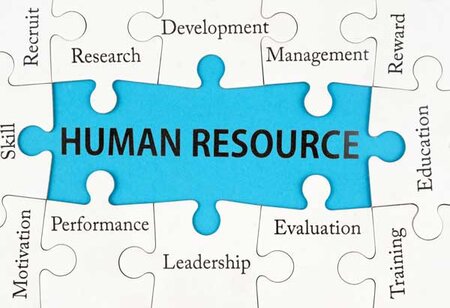Cultivating Human Capital through effective HR management
By Deepshikha Kumar Anand, Founder & CEO, SpeakIn
 COVID-19 pandemic has brought many new challenges to human resource managers as the crisis emerges as a strong catalyst to uncertainties, disruptions, and deployment of workforce across the businesses. The functions of HRM were already evolving rapidly at the onset of Industry 4.0, but the pace accelerated further after the global lockdown. Every organisation wants to gain a competitive edge over their rivals, which is impossible without employee’s cooperation. But, investing in human capital is one thing; getting advantage from their talent is something different and requires effective HR management.
COVID-19 pandemic has brought many new challenges to human resource managers as the crisis emerges as a strong catalyst to uncertainties, disruptions, and deployment of workforce across the businesses. The functions of HRM were already evolving rapidly at the onset of Industry 4.0, but the pace accelerated further after the global lockdown. Every organisation wants to gain a competitive edge over their rivals, which is impossible without employee’s cooperation. But, investing in human capital is one thing; getting advantage from their talent is something different and requires effective HR management.
Smart HR managers must now realise that conventional tactics of managing people by authoritative bosses don’t work anymore in the present age business environment
An intangible asset
Unlike other organisational resources, human capital is counted among intangible assets, but don’t have a place in a company's balance sheet. Also, as human capital is the conversion of employees’ education, skills, experience, creativity, health and other qualitative skills into certain economic value is not an easy process, to find out the actual worth of each employee is often a difficult task for HR managers. On the other hand, with the right blend of hr tools and practices, their productivity, as well as, economic value can be increased to manifolds. In this context, the new age HR managers are focusing on practices which enhance employees’ competency level, adaptability, creativity, and social skills that eventually make them more productive and profitable for the company.
At the time of recruitment, organisations always seek to hire talent with comparatively higher economic value, but value addition is a continuous procedure and it never ends. Besides, intelligent investments on human capital not only ensure better return on investment (ROI) but also result in improved retention rate, better organisational communication, and improved client engagement. So, the more a business invests in its human capital, the more it gains in terms of productivity and profitability.
Although better productivity is one of the foremost objectives of investment in human capital for organisations, it shouldn’t be the sole aim. Hence, effective HR management means the overall developments in the professional attributes of employees. Apart from making human resources more accountable, engaged, and punctual, an ideal training & development should also raise the levels of their satisfaction, initiation, and creativity at the workplace. Otherwise, they will encounter many behavioural problems such as dissatisfaction, monotony, and aggression. That’s why organisations still conducting customary training programmes without considering the physical, intellectual, and psychological well-being of their employees regularly struggle with issues such as high attrition rate, absenteeism, and conflicts between teams. Smart HR managers must now realise that conventional tactics of managing people by authoritative bosses don’t work anymore in the present age business environment.
Change is the only constant
Today, employees, especially the millennial generation, are more sensitive and assertive before their bosses. They prefer employers who seek company’s growth in employees’ growth and to whom the image of their employees creates the image of their brands in the market. In this changing scenario, employee experience is as crucial as customer experience for a progressive company. In fact, the loss of a quality professional is much more than the loss of a business patron to a growing company.
It wouldn’t be wrong to say that for effective cultivation of human capital, HR practitioners too, require improved people skills, soft skills, and technological skills. Autocratic people in the HR department can never bring the desired changes in employees through training and development programmes despite adopting innovative measures. The novel and most advanced human resource strategies such as complementary leadership, purpose-led culture, and enhanced employee experience should be the inherent parts of a comprehensive hr policy. And finally, for their effective implementation they must be introduced through the right people and in the right manner.




